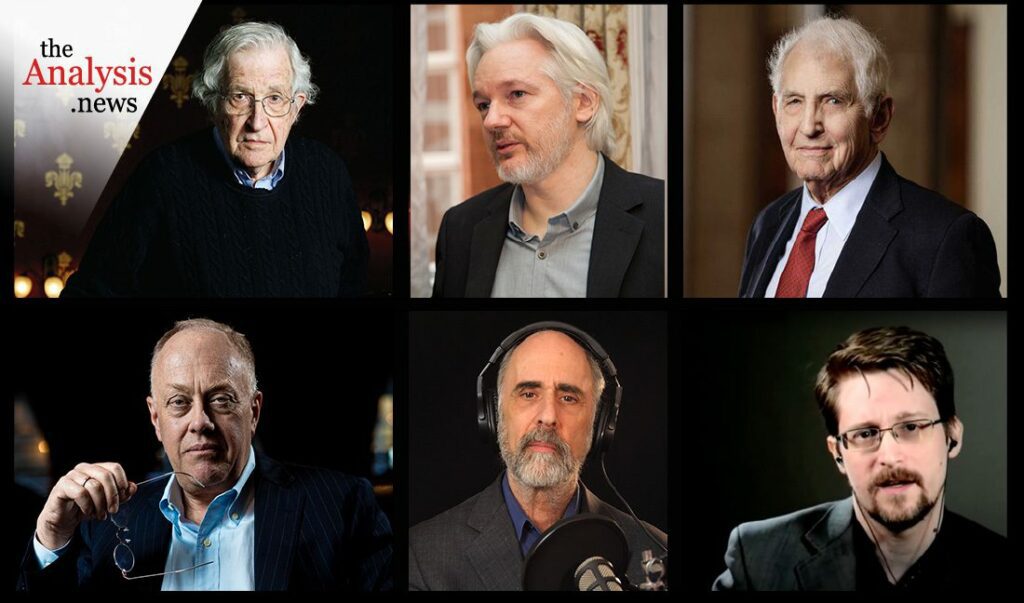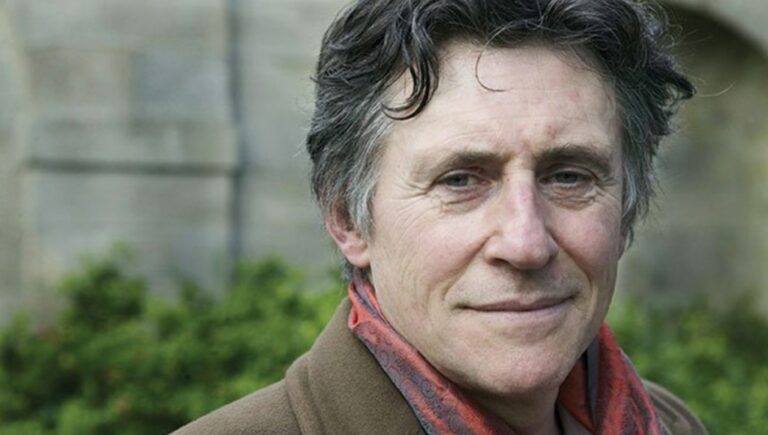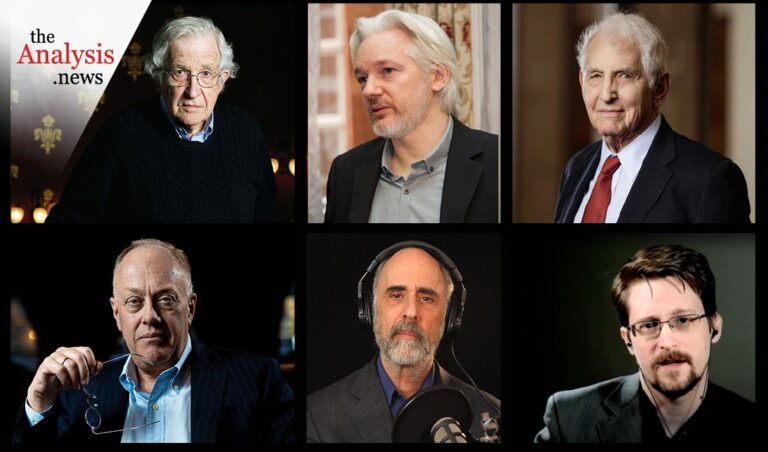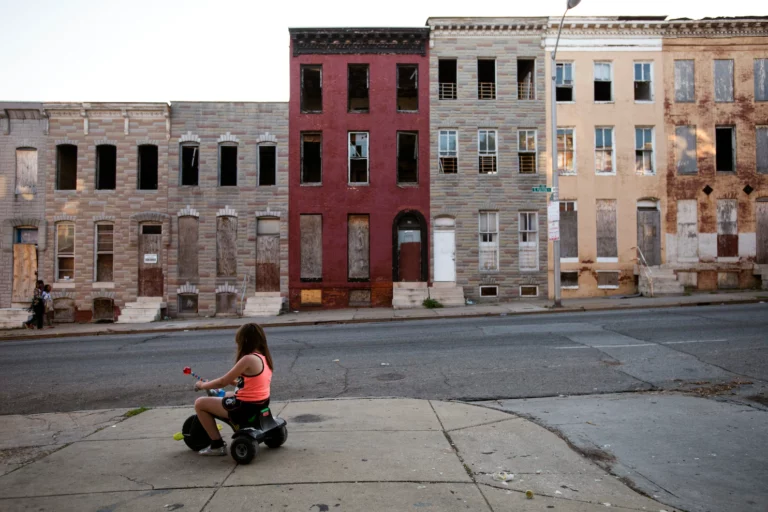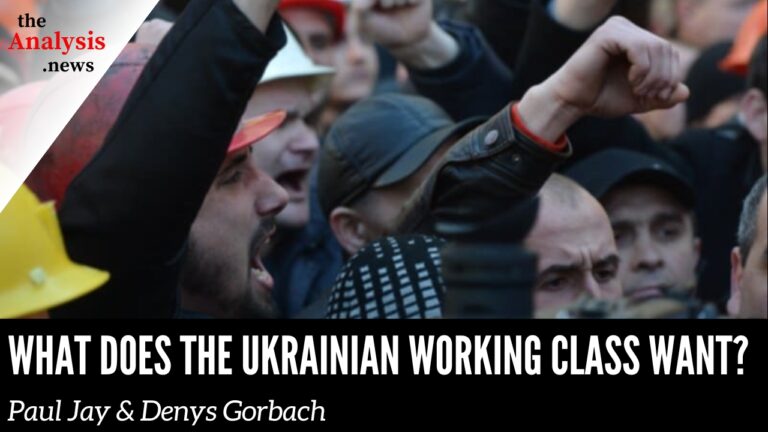Against all expectations, the left coalition, aptly calling itself the “New Popular Front,” was able to win the most seats – 182 out of 577 seats – in the final round of the French parliamentary elections. French-Palestinian sociologist Dr. Sari Hanafi explains how the left quickly formed a political alliance to keep Marine Le Pen’s far-right party, the National Rally, from gaining enough seats to govern in the French parliament. He delves into the weaponization of antisemitism to smear Jean-Luc Mélenchon, the leader of France Unbowed, which is the largest leftist party within the New Popular Front.
France: What Does Far-Left and Far-Right Mean? – Sari Hanafi Pt. 2/2
Talia Baroncelli
You’re watching theAnalysis.news, and I’m your host, Talia Baroncelli. I’ll shortly be joined by French-Palestinian sociologist Sari Hanafi. We’ll be discussing the results of the French parliamentary elections and how French President Emmanuel Macron is trying to prevent the left-wing alliance from governing in the French Parliament. We’ll also be discussing the weaponization of claims of anti-Semitism against the left-wing alliance in France, particularly against Jean-Luc Mélenchon’s Party, France Unbowed.
If you’d like to support the work we do, please go to our website, theAnalysis.news. You can hit the donate button at the top right corner of the screen, and make sure you’re on our mailing list; that way, you’re always up to date every time a new episode is published. You can like and subscribe to this show on YouTube, Apple, Spotify, or other podcast streaming services. See you in a bit with Sari Hanafi.
I’m very happy to be joined by Dr. Sari Hanafi. He is a professor of sociology at the American University of Beirut and the Director of the Center of Arab and Middle Eastern Studies. He is also French of Palestinian origin, and he recently finished writing a book on the crisis of liberal democracy. The book is called Against Symbolic Liberalism: A Plea for Dialogic Sociology. So, thank you so much for joining me again, Sari.
Sari Hanafi
Thank you, Talia. A pleasure to be with you.
Talia Baroncelli
I wanted to speak to you about the results of the French parliamentary elections, as the results took a lot of people by surprise. The left-wing alliance, the New Popular Front, was able to get 182 seats. This alliance is comprised of four different political parties, including Jean-Luc Mélenchon’s France Unbowed. Interestingly enough, Macron, the President who called the snap elections, his Ensemble or Together coalition only got 168 seats. Le Pen’s far-right party, the National Rally, got 143 seats. Not one political block was able to attain an absolute majority of 289 seats out of 577 seats. What happened in the end? How was the left able to keep the far right at bay?
Sari Hanafi
Yeah, it was a beautiful surprise, at least for me, that the New Popular Front went ahead over the others. Well, let me say first that the outcome of the result is very alarming because we know now that around 10 million French voted for Le Pen and for the National Rally. Let me start with this. It means that we are going into a very difficult time where some values, Republican values, will be in trouble with the arrival of this group. I am trying not to use the word far-right for the Le Pen Party. Simply, I don’t like it. I respect the decision of a big chunk of the French. If the group is represented by a third of the population, we cannot say the far-right anymore. This is a way of vilifying the other. I can always denounce this group. I would say some of their values are close to fascism, but I’m very careful to use the word far-right. Far is a measurement of popularity. It means that either the far-right or far-left, are not well represented. I abstain from using this.
Talia Baroncelli
We’re going to get into that a bit more later because I would… just to push back a little. The State Council in France recently made a decision on this very issue, the Conseil d’État, because Le Pen, who’s leading the National Rally, said that this designation or this descriptor of far-right used against her party by not only politicians but also in the media, was excessive or not accurate. But in fact, the State Council made a decision saying that this descriptor could, in fact, be used for her party, despite the fact that her party has tried to distance itself from the previous party which it came out of, which was the National Front, and trying to distance herself from her father who fought in the Algerian War and definitely espoused some very fascist views. In fact, he said that the Nazi concentration camps which killed and exterminated so many Jews was just a detail of World War II history. I don’t know if I personally would agree with not using that term, but we can definitely get into that more.
Sari Hanafi
Maybe I will give you my take.
Talia Baroncelli
Go ahead.
Sari Hanafi
First, I think the High Council in France, our High Court, took a liberal position. By liberal position, I mean that we cannot force people to use this word because this word by itself is not a slur; it’s not an insult. It’s a description. I would say it’s a bad description. We will come to how Mélenchon has been described. I have a lot to say about how the media plays on labeling things. From a liberal point of view, it’s very difficult to make a judicial decision on it. To say, I cannot call X or Y something like that, as long as it’s considered not an insult by itself. This is how I see things.
We come to the question of labeling because this is very alarming. My whole book is about this. I was saying that this is the first outcome. We got the second outcome that people don’t believe in at all: Macronism. Macronism plays in the center. It satisfies the wealthy with fortunes and the big corporations. It is against a mass of the French who have been impoverished in the last seven or eight years in France. Remember all the social movements we have had.
The second outcome is that nobody believes in Macron. Macron has become a minority group in the Parliament. The third outcome is that the big winner, I would say, is the Left. The Left with the coalition between France Unbowed of Jean-Luc Mélenchon, but also the Green, the Socialist Party, the Communist Party, all these coalitions. I think this coalition has a clear economic agenda. I went through the program before I voted, and I found that it’s not wishful thinking, it’s a real program that is supported by renowned French economists such as Thomas Piketty and others. It’s not what the media and Macron describe it as: radical and [inaudible 00:09:10]. It’s not true that this program is anti-European.
Now, the European Commission highlighted or warned France that its deficit has gone beyond the acceptable rate of 3%. Currently, the deficit of France is 5.5%. It’s clear with the program of Jean-Luc Mélenchon, in this regard, there is no difference with the others that we can increase the minimum wage or universal basic income. We can tax the big corporations. We can tax those who are really hyper-rich in France, and this exists.
Now, all the scandals worldwide, not only in France but in all the Western countries, i.e., the United States and Canada, how something like 1% of the population has around 90% of the assets or 80% or 60% or 70%. There is something with the concentration of wealth that is very alarming. France Unbowed has a clear plan for this. It means that the French people have said enough is enough to Macronism. We want a new political plan and more honest politicians. This is how I read the election with the three points.
Talia Baroncelli
Macron was always saying that there has to be pension reform, that there isn’t enough money to pay workers a certain amount and that they shouldn’t be able to retire at a younger age. So his argument was always that the purchasing power or the budget of the French National Assembly could not account for improving the living conditions and working conditions of the average French person or person living in France, working in France. The sentiment that most people have in France belies this argument.
I do want to ask you about Emmanuel Macron, the French President, not picking a Prime Minister. Constitutionally, he doesn’t have to immediately pick a Prime Minister after the elections, but at some point, he has to. His Prime Minister, Gabriel Attal, immediately after the election results came out on Sunday and did offer to resign. Macron then said that he would not accept his resignation. It almost seems like he is potentially engineering a coup. What would you say to that? How is he saying that no one has won this election? How do you assess what Macron is doing?
Sari Hanafi
Talia, it’s difficult to call it a coup because the Constitution, in this regard, is ambiguous. In France, you have a clear-cut Republican tradition. I am using so much in this interview the word Republican because the French love that. Macron, particularly, shines this Republicanism. You remember his law against separatists and the idea that everyone who lives in France should be Republicans. I’ll play the game.
In his Republicanism, there is tradition. We see it with [François] Mitterrand, and we see it with [Jacques] Chirac, where the President comes from a majority different from the Parliament majority. Automatically, Mitterrand and Chirac chose the party that got more seats. Obviously, the New Popular Front should have this opportunity. But Macron, in this regard, is really playing unethical politics. This is how I qualify it. Instead of saying anti-unconstitutional, I would say it’s unethical politics.
Talia Baroncelli
We should maybe explain why because what he’s doing is saying that no single party has attained any majority. If you look at the parties themselves, it was the far-right party, if we can use that term, the National Rally, that attained 127 seats. Macron’s Renaissance Party attained 104 seats. If you look at the largest party within the Left Alliance, France Unbowed, they achieved something like 74 seats or something to that extent.
Sari Hanafi
No, but this is the point. Again, there is a Republican tradition. In the Republican tradition, you talk about the coalesced group; you don’t look for–
Talia Baroncelli
Exactly. You don’t look at the individual parties; you look at the alliance. If you look at the alliance, the Left got 186 seats.
Sari Hanafi
Yeah, exactly. This is what we find in Germany. This is what we find everywhere. By the way, I looked at the statistics three years ago when I was preparing my book, and around 68% of countries worldwide are governed by a coalition. The idea of coalition is a rule and not an exception. If you look at this coalition, the rule of thumb is that the biggest group will take the lead. This is why I describe this as unethical politics because in any case, it should be obvious mathematically. You give the biggest group the possibility to find other smaller groups, even if the difference is one seat.
As you know, as a Palestinian, I follow closely the Israeli elections. Often, the difference is one seat between each group, and the Israeli President will automatically choose the biggest coalition. Once a coalition is declared, you cannot escape this coalition. This is why I think Macron is… What is funny is it’s the opposite of his argument on why he dissolved the Parliament and called for a new election. He felt a new feeling among the French, which should be respected after the European election. In the European election, Macron took a heavy hit. He got much fewer seats in the European Parliament than before. If he thinks like that, he should follow these rules. But again, he is, as a politician, unethical.
Talia Baroncelli
Well, he was the one who decided to call for these snap elections in the first place. Why do you think he did that? Was he just trying to perhaps make–
Sari Hanafi
This is a very good question.
Talia Baroncelli
–the right and the Left, try to get them to scramble? He did say that he wanted to verify the position of the French people.
Sari Hanafi
Absolutely. I think he is maneuvering and not doing what he declared. The remaining time for the new election is almost two years, two years and a half. The new presidential election in France is in 2027. He knows any political parties that will govern in this very difficult moment in France will have to deal with French dissatisfaction with their government and a lot of social demands, and the party will be grilled. He thought that he was much more interested in grilling the National Rally. Why? Because the National Rally is a real threat to his political party in 2027. He thought he would discredit the National Party and what he called the far-right. They will not win the presidential election.
Remember that France is a presidential regime. The president has a lot of power, not only in domestic affairs, but a lot on foreign affairs. This is why there is a lot of issues at stake in 2027. He sought to grill the party. Now, even with this logic, he really doesn’t want to give any platform to Mélenchon. Why? Maybe it’s time to talk about that.
It’s horrible. The labeling waged not only by him but by the media claiming that he’s anti-Semitic, claiming that he is very radical. He is, I think, using all these labels to destroy the enemy. This is what I describe now in our late modernity and in the crisis of liberal democracy: this societal intolerance and the shilling climate of polarization. You kill your enemy. Killing is not by political assassination anymore; killing your enemy through media.
Remember Carl Schmitt. Carl Schmitt was a famous Nazi philosopher and political scientist in the time of Hitler. He has a very interesting description of the politics of the time. The politics is between foes and enemies, between friends and enemies. No one is neutral. If you are on the opposing side, you are my enemy, so I need to kill you. He showed how political fear was so violent in the time of the Weimer Republic in Germany. Now, this is what we are seeing in France.
A few days ago, I had a conversation with a dear friend, Ghassan Hage. Ghassan Hage is a famous Lebanese-Australian anthropologist. Ghassan did his PhD during the Lebanese Civil War. He went to interview within his environment in the Maronites area in Eastern Beirut. At a certain point, one of his right-wing Maronites guys was saying that Palestinians wanted to take over Lebanon and create from Lebanon a substitute homeland. Ghassan Hage asked simply, Do you have any evidence? With a little bit of silence, the guy told him, I will go to my car and get my revolver to kill you.
This reply is what you see today: how people like Macron use anti-Semitism, mobilize it, to kill the enemy. It’s so absurd. You see how we reply to each other. I asked for evidence, and you want to kill me? This is how I feel today.
Just three days ago, the renowned political scientist in France, François Burgat, was arrested by the police because there was a court case against him, an apology for terrorism. Of course, who made this complaint, the European Jewish Association. It’s the same who did it against Rima Hassan, number three in the political party of Jean-Luc Melenchon. It’s really a political assassination, but again, not in a physical meaning that you try to assassinate your enemy.
This is the point. I had a discussion a few days ago where I was in Oslo giving a talk about Gaza, the war on Gaza. One person in the audience kept repeating statistics about how anti-Semitism today is on high rise in Europe. There was no way to stop him before telling him, look, it’s a lecture about the war on Gaza. He comes here telling me that there is a risk of anti-Semitism. I told him it is exactly like we imagined in the 1960s, somebody like you, French, saying that Algerians are anti-French.
Talia Baroncelli
If I can add, the left-wing coalition came out repeatedly against anti-Semitism. In fact, their campaign manifesto says, “Anti-Semitism has a tragic history in our country that must not be repeated. All those who spread hatred of Jews must be fought.” So they have a clear position against anti-Semitism, against targeting Jews, against making disparaging or disrespectful comments against Jews. But of course, the question is, how do we define anti-Semitism? Which definition do we use? If we’re equating critique of the Israeli government with anti-Semitism, then those lines get blurred. So this is where people in the center or the extreme center, if you want to call it, in Macron’s party, as well as people on the right, start using this definition of anti-Semitism to discredit the entire Left and to discredit Jean-Luc Mélenchon.
Sari Hanafi
Yeah. In the first interview Macron did on why he banned the pro-Palestinian demonstration in France, he said that he considered the Palestinian flag and the Kufiya as anti-Semitic. Then, when the journalist probed, he said, because it would put the Jewish community under stress. Who has the right to be stressed, and who has the right not to be stressed? Two million people in Gaza are either displaced or, so far, we have almost 40,000 killed. Their stress is the word distress. Being in distress and not feeling safe. All this vocabulary that we hear today, we have an internal debate that cancels the other. It’s really cancel culture. We often say this is the Left who does cancel culture and don’t want to respect mainstream politicians, which sometimes is true. But now it’s really the right wing, the way they are doing it is terrible. Macron is really part of this cancel culture, canceling the Palestinians.
Talia Baroncelli
Jordan Bardella who’s also leading the National Rally, if his coalition had gained the most seats in the recent second round of elections, then Macron would have to pick Jordan Bardella as the Prime Minister. That, of course, didn’t happen. But after the elections, Jordan Bardella said that the left-wing alliance, the left-wing coalition, which gained the most amount of seats, was the extreme left or extreme gauche, as he said, and said that it was a coalition of dishonor. So again, here he’s also weaponizing those claims of anti-Semitism and calling the left extreme. We’ll get to this language around far left and far right, but I wanted to stay on anti-Semitism just for the time being. Within the left wing alliance itself, are these accusations also launched against Jean-Luc Mélenchon? He’s also quite divisive, rather, among the parties within the left-wing coalition.
Sari Hanafi
Yeah, actually, you are right. Even in some socialist parties, we hear the way they talk about Mélenchon, but they end up coalescing with him. If you like, we should admit that the mainstream political parties in France are really pro-settler colonial Israeli agenda. It is as simple as that. France is still selling arms to Israel. It is as simple as that. Today, if we have a Prime Minister who is socialist, I am not sure they will stop selling arms to Israel, even if the UN claims that it’s plausible that Israel is committing a genocidal war in Gaza. Yes, Macron or the right wing, they are pro-Israelis.
We need to shift the debate now. The major issue of the state is not true about anti-Semitism, as you said. Jordan Bardella and the National Rally, it’s true that in the last 20 years, there has been a complete shift in the discourse vis-à-vis anti-Semitism. Why? The enemy of my enemy is my friend. The enemy of the Muslims has become a friend. The Islamophobia, this is really the biggest phenomenon today in France.
I’m not discarding the rise of anti-Semitism. We need to be vigilant about it, and we need to denounce it. Today, quantitatively, if we look at incidents in many European countries, Islamophobia is at the top. Unfortunately, it is not only in Europe but in the United States, India etc. This is the biggest phenomenon.
Coming back to anti-Semitism, I think there is absolutely a consensus among all political classes in France against anti-Semitism. But nevertheless, as you mentioned, it’s remained a currency to destroy the other. This is a keyword: to destroy. Once you say you are anti-Semitic, you are destroyed. This is the situation we are in.
Maybe it is time, Talia, that I talk a little bit about the National Rally’s ideology. I think they are really dangerous in terms of bringing a very racist, chauvinistic nationalism to France and raising the question that they will not give any sensitive position to double nationality people.
We discovered that the advisor of Jordan Bardella is someone who is Russian and French. This is his top political advisor. In the mind of Bardella, it’s very interesting. Treason doesn’t come from the European space. I would say not from the Christian space but from the other space. It’s from North Africa. When Bardella talks about that, it is particularly about North Africa.
With a lot of thought, they drafted a law not yet submitted to Parliament that they want to neutralize anyone who has a thought, not actions, just a thought, if you are against Republican values. This is amazing. France is the only country in the world where you see this concept, Republican values. I know liberal values. There are universal liberal values, but Republican values, it’s something that has changed how people define Republicanism.
French secularism, laïcité, is under heavy scrutiny because of its anti-foreign religion. You have a very racist, if you like, laïcité in France. What are Republican values? This is where the National Rally is playing this game. In this meaning, there is no need for me to say whether they are far-right or not right; they have a clear fascist, Islamophobic, and exclusionary agenda to those who are different, who refuse to be part of the cultural majoritarianism. Those who refuse to go through assimilation–
Talia Baroncelli
What you’re doing is also, if I could say so myself, weaponizing laïcité. This idea of laïcité and this law came about in 1905. So this idea of having a secular society is something that’s very prevalent in France and is also insured in many different public spaces. A lot of this has become more controversial, where in certain workspaces, Muslim women are not allowed to wear a veil anymore. They’re saying that this is French secularism. But in a sense, what they’re trying to impose is the Judeo-Christian values as opposed to secularism by prioritizing or valorizing those values and excluding a pluralist society, which would obviously include people of different faiths and different political dispositions and sexual orientations. Their idea of secularism is also very distorted, is it not?
Sari Hanafi
Absolutely. Talia, Judeo-Christian values, they are imposing a certain reformed Christianity. Christianity is confined to a private space where you have an individual conscience that your conscience is with God, so this is a personal thing, plus some rituals you can exercise in church. Beyond this, you cannot carry any sign. All of this is a big lie. In France, whenever you go, you find places, squares, where you have a cross. Again, I don’t consider this against secularism. But just to say that even though they have an image of reformed Christianity, they want to define the other religion accordingly. Any religion, in this meaning, the Sikh, the turban of the Sikh, it’s against laïcite because it’s also a religious sign, according to this way of defining what is allowed or not allowed in the public space. I would say, historically, France is really an outlier. Worldwide, secularism is much more tolerant; it is accommodational of religious signs. They have really defined a principle distance between state and religion, or if you like, a minimal neutrality of the state vis-à-vis the others.
This is how you find it elsewhere like in Denmark, where the Constitution is written that the queen or the king should be part of the Anglican church. But nobody felt that this was anti-secularism because this is the Danish tradition. You go to Denmark and you see that nobody imposes on you any values, even if it is taught in the schools. In the last 20 years in Denmark, they changed from only catechism or teaching this Anglican religion to allowing Muslims, Sikhs, Buddhists, etc, to have their own teaching.
France, in this meaning is really an outlier. Every time you have an election, you raise this issue to galvanize public opinion and make people more nationalist. It pays. We tell the truth. This is how the National Front, National Rally, they got more votes. This is how Macron galvanized the French public opinion with his law against separatism.
Talia Baroncelli
You’ve been watching part one of my discussion with Sari Hanafi. In part two, we’ll be continuing this discussion on what the labels far-right and far-left actually mean and how anti-Semitism has been used to target the Left and to discredit the Left in France and in other European countries. See you next time.
Podcast: Play in new window | Download | Embed
Subscribe Apple Podcasts | Spotify | Android | iHeartRadio | Blubrry | TuneIn | Deezer | RSS
Never miss another story
Subscribe to theAnalysis.news – Newsletter
Sari Hanafi is currently a professor of sociology at the American University of Beirut and chair of the Islamic Studies program. He is the president of the International Sociological Association and also the editor of Idafat: the Arab Journal of Sociology.









